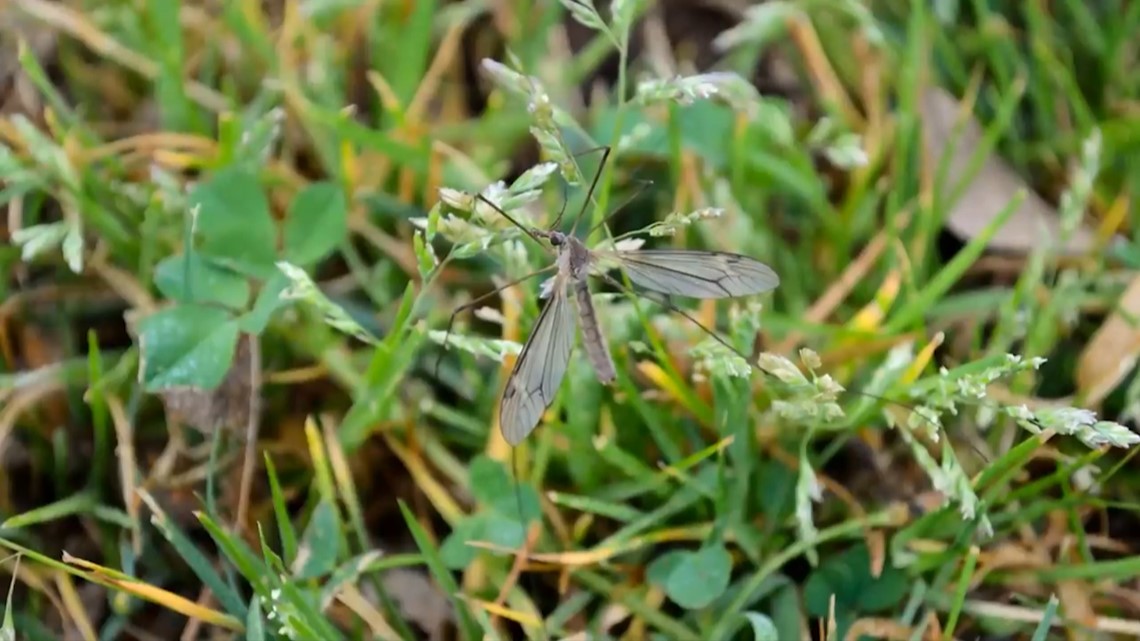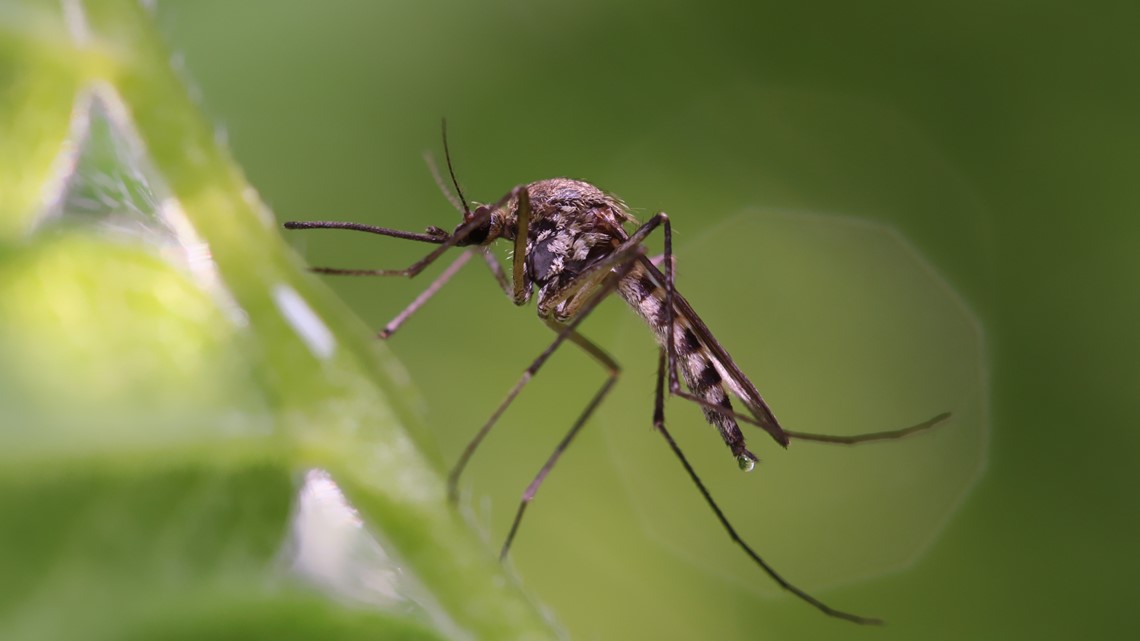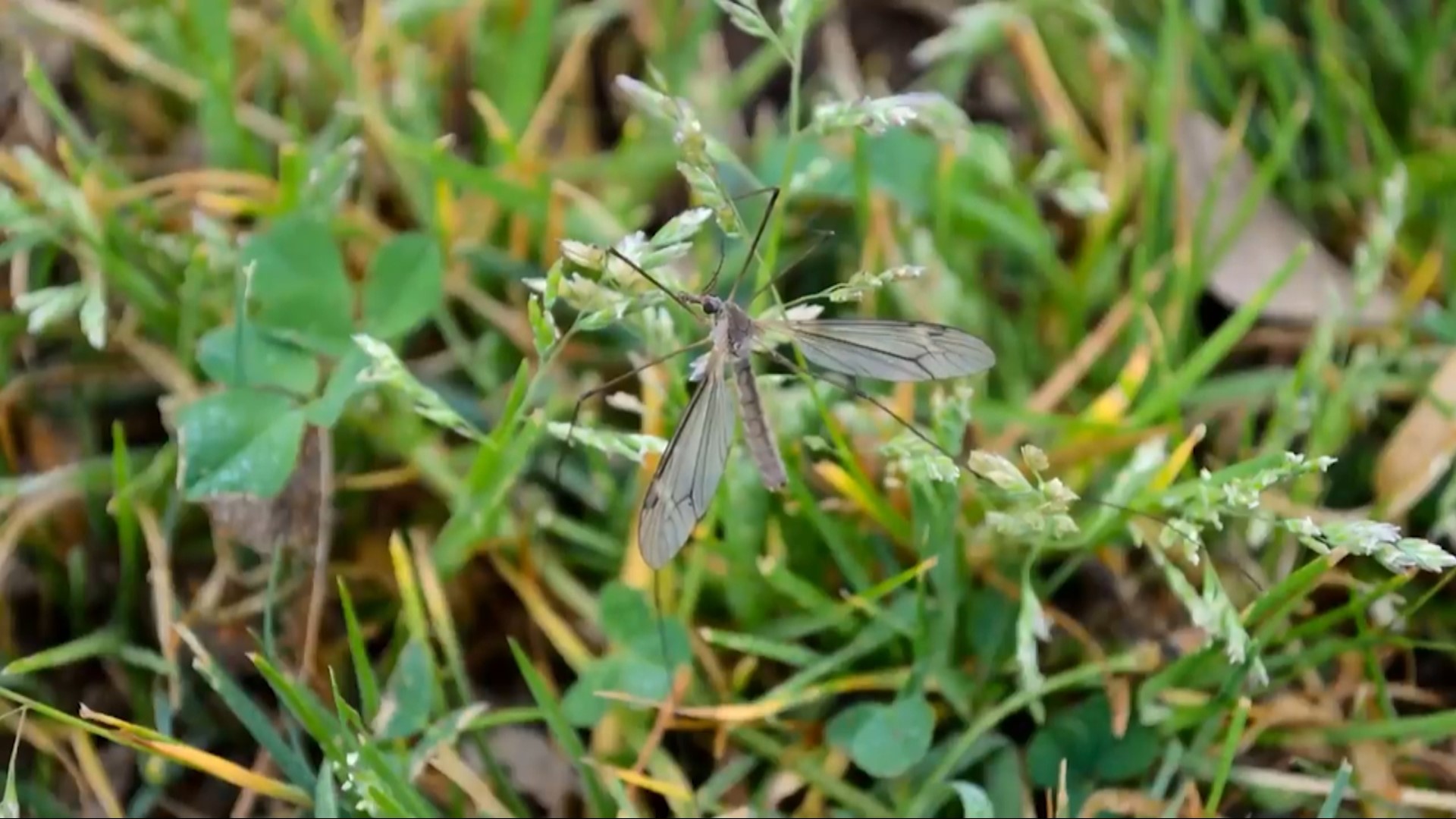TEXAS, USA — You may have noticed what looks like a giant mosquito hanging around your yard. While they make look scary, it's not actually a mosquito.
Midland College Biology Instructor Bethany Guajardo explained to NewsWest 9 that the correct name is a crane fly, also known as the mosquito hawk.
"People get kind of nervous because they think 'Oh my God, that's a giant mosquito, right?' It's not, it's not," Guajardo said.
Guajardo has been a biology instructor at Midland College for two years and she has core knowledge of entomology - the study of insects.
The first way to separate a crane fly from a mosquito is their scientific grouping.
"Our crane flies, they fall in this little family called the Tipulidae," Guajardo said. "It helps you to separate them out from a mosquito. A mosquito, they're in the family Culicidae, completely different, separate."
If you look at their body closely, it would be clear that one is not like the other.




"They get a little scared, they think, 'Oh, it's huge.' I bet it's got either, A, a big sting or two, a big bite, right," Guajardo said. "Mosquitoes bite. These guys don't. If you were to look at them under the microscope, the adults don't really feed. OK, if they do, they're going to be feeding on nectar."
Not only do crane flies not bite, the appearance of a stinger on their body is actually a way to signify a female. They physically do not have the ability to sting someone.
Crane flies are more similar to butterflies and bees that help pollinate the area. They are not a predatory insect.
"Think of them as kind of like opportunists," Guajardo said. "So they're not harming anything. Umm, I guess, except for mosquitoes. Uh, for us, that's good. OK, mosquito, not so much."
Crane flies do indeed keep mosquitoes at bay. So, it might be wise to think twice before you swat one or destroy its habitat.
"If you just completely wipe out an area of their natural vegetation, you're taking away where they can actually deposit their eggs, right," Guajardo said. "They need vegetation to hold in moisture, OK? And so if we deplete that, OK, no more moisture, no more crane flies. And more mosquitoes, yeah."
The crane flies will not stick around forever, crane flies have a very short lifespan so once they eat the mosquitoes, lay eggs and reach adulthood, they'll be gone pretty soon after.

